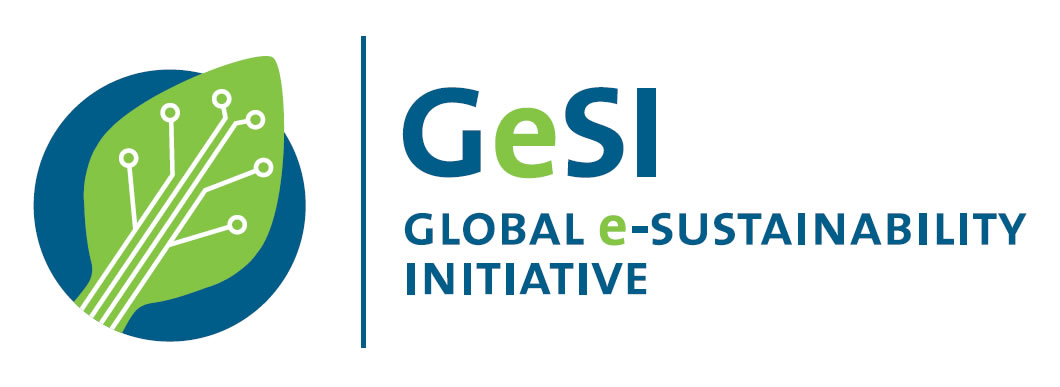26 May, 2015
ETNO ThinkDigital Blog Post: Digital technologies fundamental to our sustainable future
Luis Neves, GeSI Chairman: "With GHG emissions rising and Europe still recovering from the financial crisis, there is an increased sense of urgency for a comprehensive strategy to achieve low-carbon growth. ICT, with its cross-sector role, is central to this approach."
 square.jpg) The Global e-Sustainability Initiative (GeSI) is a recognised thought-leader in the area of ICT and sustainability. Its latest report, SMARTer2030, will be officially released on 9 June in Bonn, in parallel with the UNFCCC negotiations leading to COP21.
The Global e-Sustainability Initiative (GeSI) is a recognised thought-leader in the area of ICT and sustainability. Its latest report, SMARTer2030, will be officially released on 9 June in Bonn, in parallel with the UNFCCC negotiations leading to COP21.
The release of the European Commission’s Digital Single Market Strategy has given fresh momentum to the debate on the opportunities offered by Information and Communication Technologies (ICT), and the steps needed to unlock the full potential of technology. The Global e-Sustainability Initiative (GeSI) has been working in this field since 2001, becoming one of the global thought-leaders and main drivers of the sustainability agenda.
Back in 2008, GeSI released its SMART2020 report, which assessed the carbon reduction potential enabled by the application of ICT solutions in other sectors such as energy, buildings, transports and agriculture. The study was followed by a second report, SMARTer2020, released in 2012, which quantified the carbon abatement potential of ICT as equivalent to 9.1 gigatonnes of carbon dioxide (GtCO2e), or 16% of the total global emissions by 2020, while deriving an economic benefit equivalent to the GDP of Russia and creating around 30 million jobs globally.
On 9 June this year, GeSI will present the third instalment of the SMART series. While building on the results of the two previous reports, SMARTer2030 will introduce a number of important, innovative elements: the study has extended the time horizon to 2030, and included additional environmental metrics (e.g. resource efficiency and air quality) beyond carbon abatement.
Furthermore, the study looks at ICT-enabled sustainability from a holistic point of view, extending the assessment to social and economic metrics: these include the increased access to ICT services (eHealth, eLearning), which constitutes the first pillar of the Digital Single Market Strategy, as well as new income and savings opportunities for both businesses and consumers.
With GHG emissions rising and Europe still recovering from the financial crisis, there is an increased sense of urgency for a comprehensive strategy to achieve low-carbon growth. The Lima Call for Climate Action, which set the road to the COP21 taking place in Paris later this year, asked for national abatement plans to lay out a global emission reduction goal of 50 to 85% by 2050. At the same time, consumers are driving change by demanding active leadership and responsibility from businesses.
ICT, with its cross-sector role, is central to this approach. To make the case for the role of ICT as a key catalyst for sustainable development, performance data is needed to demonstrate the business value of sustainability actions.
The SMARTEr2030 report addresses this need, and illustrates through a number of case studies what successful applications of ICT we can have in everyday life. The report also contains recommendations to decision-makers and consumers on what actions are needed to make the most of the technology benefits, in line with the Commission’s strategy to eliminate barriers to the achievement of the Digital Single Market.

GeSI welcomes the approach taken by the Commission on this point, and the intention to make the EU Single Market fit for the digital age. We look forward to a continued dialogue with European and global stakeholders, to ensure the implementation and to keep raising awareness of the transformative role of ICT solutions in achieving the transition to a low-carbon sustainable economy and sustainable living.
SMARTer2030 will be officially released in Bonn on 9 June. The event agenda is available here. Registration is open at this link.
Addendum: Since the publication of this blog post, GeSI has launched the SMARTer2030 report. Access the full report and explore the data here.
By Luis Neves, GeSI Chairman, for ETNO #ThinkDigital, 26.05.2015
***
Biography
Luis Neves is Chairman of the Global e-Sustainability Initiative (GeSI), and Climate Change and Sustainability Officer, Executive Vice President at Deutsche Telekom Group. With over thirty years of experience at national and international level in the field of telecommunications and Information Society, Mr Neves has played a fundamental role in promoting the role of ICT in relation to climate change. He was the driving force and chairman of the steering committee of the landmark study 'SMART 2020 - Enabling the Low Carbon Economy in the Information Age'. He currently holds positions and participates in a range of international projects and initiatives including GeSI, the United Nations Global Compact Group and Steering Committee of the United Nations 'Caring for Climate Initiative'.


